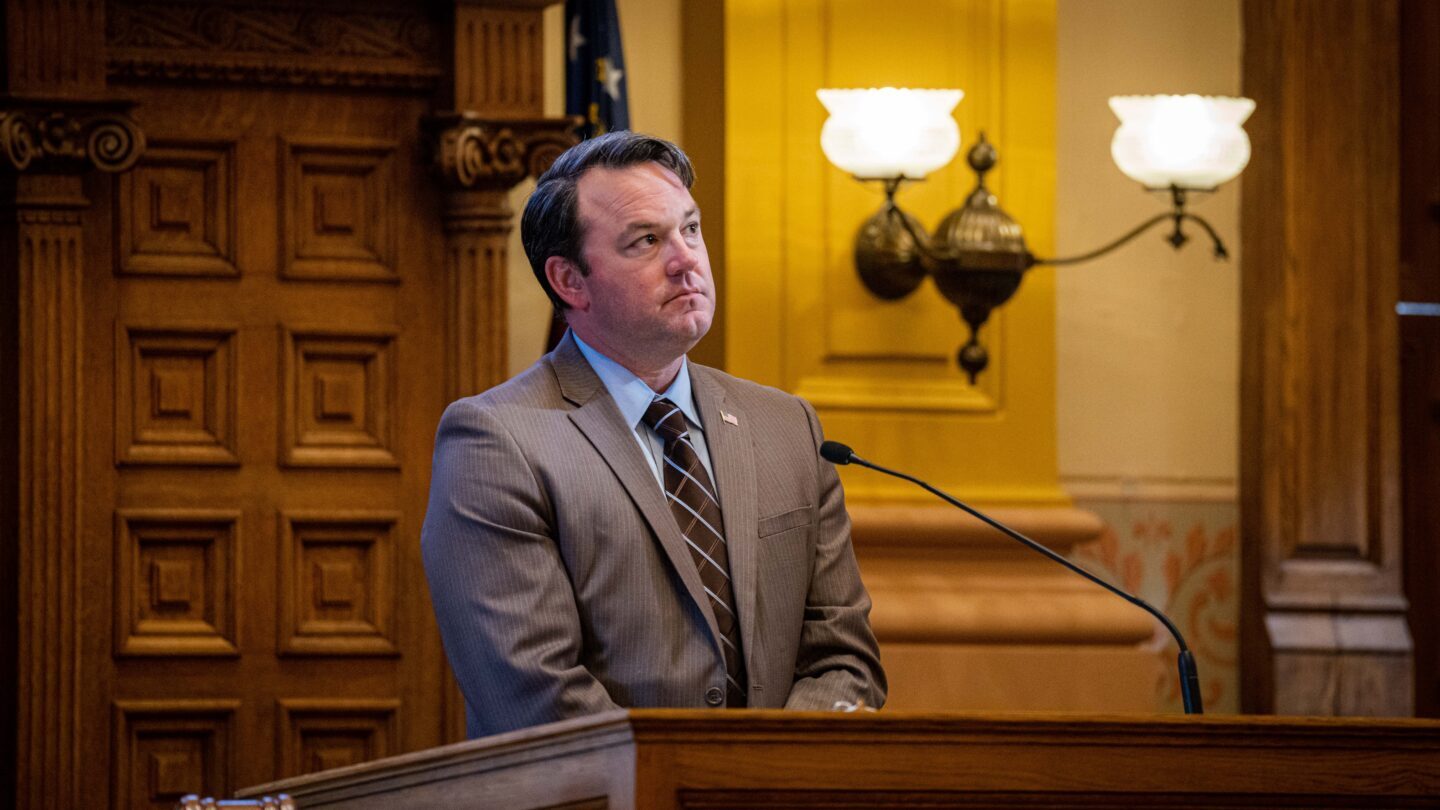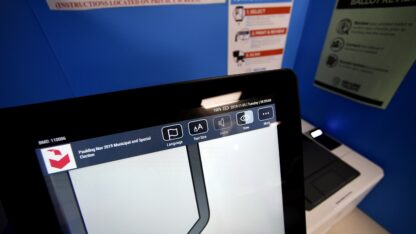Lt. Gov. Burt Jones allegedly requested access to election computers in Butts County after the 2020 election, according to evidence presented in the federal trial over Georgia’s voting machines.
In a December 2020 email chain obtained by WABE and presented in federal court, an official in the Georgia secretary of state’s office reported a concerning call from the Butts County election director.
The director at the time apparently told state officials that Jones, then a state senator, had approached the local election board chair and asked to allow a “forensic analyst” to inspect the election management server in Butts County.
The secretary of state’s general counsel, Ryan Germany, warned in the email chain that doing so would be against the law and wrote, “That would be a huge security breach.”
The exchange was first reported by the Atlanta Journal-Constitution.
“Tina in Butts is not inclined to let anyone from the outside touch their server,” wrote Michael Barnes from the secretary of state’s office, referencing the election director. “She was just wanting confirmation that she could tell them no.”
There is no evidence anyone gained unauthorized access to election equipment in Butts County.
A spokesperson for Jones, Chris Hartline, wrote in a statement: “During the 2020 election, there were numerous complaints from his constituents in Butts County about irregularities in the voting process. His job as a state senator was to ask questions and try to resolve those issues, and that’s what he did.”
Butts County’s current elections director, Brook Schreiner, says she is not aware of any security breaches or attempts to inspect election equipment.
“The secretary of state’s office just did a health check on the equipment in Butts County and all passed,” she wrote in a statement. “As the current director, I am dedicated to upholding the standards of excellence set by my predecessors and ensuring the continued security and accuracy of our election processes.”
About 175 miles away in Coffee County, allies of then-President Donald Trump were able to illegally access sensitive voting equipment in the weeks after the 2020 election. Two people have pleaded guilty to criminal charges in connection with that effort in the Georgia election interference case and several others are still facing charges.
Jones had previously been under investigation by the Fulton County district attorney’s office for signing onto a slate of electors for Trump after Joe Biden had been declared the winner in Georgia. But a judge disqualified District Attorney Fani Willis from investigating or prosecuting Jones after she held a fundraiser for his political opponent in the 2022 race for lieutenant governor.
Jones has said he did nothing wrong and called the investigation politically-motivated.
“You know, the fact of the matter is we had court cases going on at the time,” Jones said during the Atlanta Press Club debate in October 2022. “It was a procedural move that we knew we were not going to move forward if those court cases didn’t move forward.”
The Prosecuting Attorneys Council of Georgia has yet to appoint a special prosecutor to take over the investigation. Three other so-called “fake electors” from Georgia were indicted in August.
The emails came to light in a years-long legal fight over Georgia’s electronic voting machines. The state has defended the security of Georgia’s voting system, but the election security activists who sued and some top election technology experts say the devices are vulnerable to interference.
This lawsuit began well before Dominion voting machines became a target of far-right conspiracy theories after the 2020 election. A 2022 advisory by the U.S. Cybersecurity and Infrastructure Security Agency did find some security vulnerabilities in the voting software, though the report uncovered no evidence they have been successfully exploited to affect an election.
U.S. District Judge Amy Totenberg is expected to rule on the voting system in the coming weeks.









